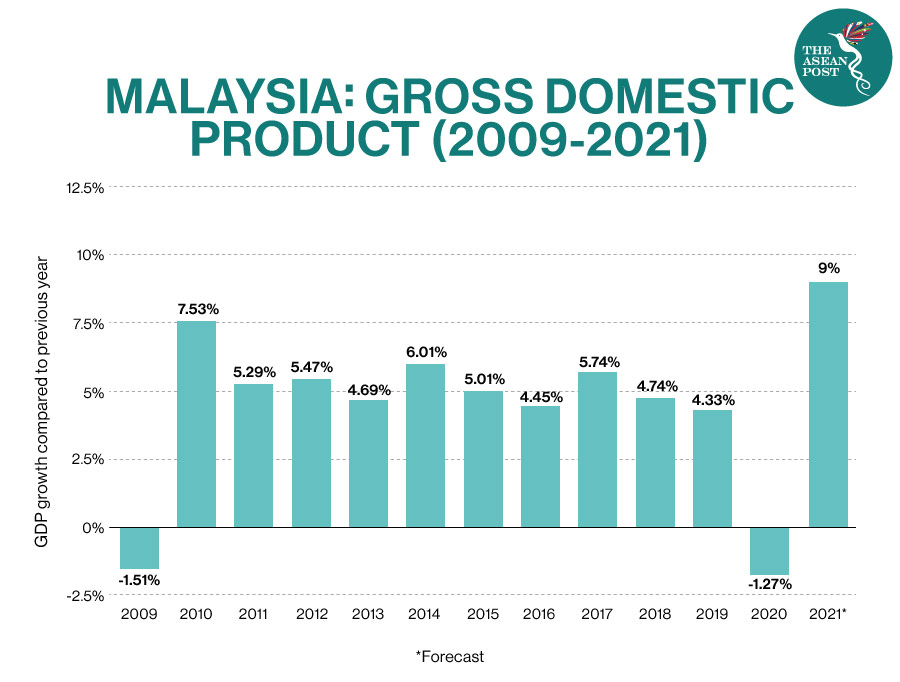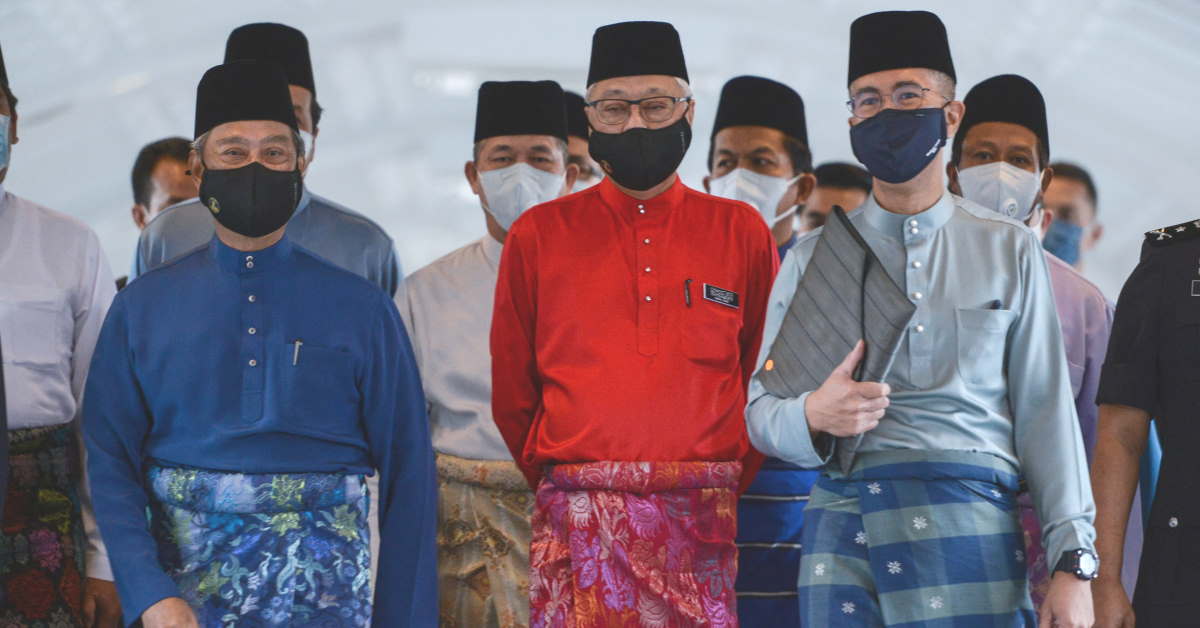With COVID-19 infections in Malaysia showing a downward trend, a death rate at 0.4 percent among the lowest in the world, and with more than 90 percent of COVID-19 patients fully recovered, the stage is set for the current, third wave to be a manageable affair in a few months’ time.
What’s more, the government of Malaysia has some new strategies to ensure the infection curve will be flattened as soon as possible by controlling the spread of the disease.
For instance, based on its data, it was observed that 10 percent of the clusters had contributed to more than 85 percent of COVID-19 cases in the country. Henceforth, the government will take a more targeted approach by implementing a stricter movement control order (MCO) in locations where clusters are found.
This science-based approach had already been put into action when the government announced on 1 March that an enhanced MCO will be imposed in the Federal Land Development Authority (FELDA) Jengka 1, 2, and 7 as well as FELDA Ulu Jempol rural farmer settlements in Maran, in Pahang until 15 March.
As explained by Senior Minister (Security Cluster) Ismail Sabri Yaakob, the move is to facilitate the Health Ministry (MOH) to carry out early detection and isolation of COVID-19 cases to ensure residents with infection risks remained in the enhanced MCO area.
Meanwhile, the government of Malaysia has also enforced the MCO in the district of Nabawan, in the East Malaysia state of Sabah from 3 March until 16 March following a sharp rise in cases involving a cluster in the district that has high infectivity.
At the same time, while the government will be opening up more sectors of the economy, all economic activities are subject to a stricter social distancing and standard operating procedures (SOPs). The implementation of these SOPs will be enhanced by a firm action against SOP violators which currently average 500 a day.
One Year On
So, a year after the National Alliance coalition or Perikatan Nasional (PN) had taken over the government, Malaysia is now moving towards a recovery trajectory with a balance between lives and livelihoods, and at the same time, is moving fast to put in place some fundamentals that will steer the country in the right direction for a post COVID-19 recovery.
This was the gist of the special message delivered by Prime Minister Muhyiddin Yassin, dubbed as One Year of Concerned (Prihatin) Malaysia, which marks his one-year anniversary as prime minister of the country.
It is indeed very clear that the government has adopted and will be adopting an enlightened, two-pronged approach in not just fire-fighting but also putting in place the necessary fundamentals for Malaysia to thrive in a post COVID-19 world.
Among some of these measures are empowering Malaysia with a digital economy as a new source of wealth through the action framework of the MyDigital initiative launched by Muhyiddin on 19 February, along with a focus on implementing the Digital Education Policy, which inter alia will bridge the digital divide and produce responsible citizens that function in a knowledge virtue-based society.
All these measures will provide the direction needed for Malaysia to create a talented workforce for the 21st century in order for it to be a more competitive country in the digital era.
“I believe the Digital Education Policy is one forward move to provide for a generation that is digitally literate and at the same time propels the quality of our national education to be one of the best in the world,” said Muhyiddin.
Other fundamentals mentioned by the prime minister in his message that will facilitate the recovery of the economy and equip it with the wherewithal for a post COVID-19 world include:
Security Of The People
Ensuring the security of the people (rakyat) via managing the spread of COVID-19 through enhancing some aspects of border control especially a no compromise, tighter control of the border to prevent the entry of illegal or undocumented immigrants who are one source of the spread of the disease.
Travel Bubbles
A comprehensive effort at creating travel bubbles with some potential countries that have brought the COVID-19 virus under control. This is very important in order to activate bilateral trade and investment that will accelerate economic growth. This is also in line with the ASEAN Travel Corridor Arrangement (TCA) mooted at the ASEAN Summit in November to facilitate intra-ASEAN travel which will revive trade, tourism and the services industry.
Shared Prosperity Vision 2030
Introducing the Shared Prosperity Vision 2030 (SPV 2030) as a continuity to Vision 2020 with the main goal of ensuring Malaysians in general can enjoy a decent standard of living by 2030. This will be implemented through the 12th Malaysia Plan (2021-2025) and the 13th Malaysia Plan (2026-2030), respectively.
Among the priorities of the 12th Malaysia Plan are managing poverty, especially the eradication of hardcore poverty, now that the pandemic has pushed a lot more Malaysians into this category.
Towards this end, a Cabinet Committee on Poverty chaired by the prime minister has been formed to explore in detail what can be done by the government, government-linked companies, voluntary organisations and the private sector to manage together the problem of poverty.

Other priorities include speeding up developments in the East Malaysia states of Sabah and Sarawak, and others under developed states by stabilising the provision of infrastructure and basic needs; providing a conducive eco-system to develop micro, small and medium sized enterprises; speeding up both, the take-up rate of advanced technology and digitalisation among businesses and the people; and the transition to a green economy to support the country’s agenda of sustainable development and low carbon emissions.
On sustainable and green development, the prime minister has already launched in January a 100 Million Tree-Planting Campaign as part of the Greening Malaysia Programme, one of the national agendas for addressing climate change and improving the quality of life of the people.
The prime minister also touched on the Emergency ordinances which have facilitated the war on COVID-19. Giving assurances that the Emergency is not an attempt to prolong his tenure in office, Muhyiddin said: “All these ordinances are meant to enable the government to manage the COVID-19 pandemic in a more efficient and effective way, including improving the management of foreign workers’ dwellings which is one main source of the spread of the disease.
“With the Emergency, all these ordinances have been implemented in short order without going through the normal parliamentary process that will take too long to materialise. I’m aware and understand what democracy means and hence, nothing in these ordinances were meant to enable the prime minister to remain in power indefinitely. Even this Emergency is not indefinite. It has an ending which is 1 August. This is the first time in the nation’s history that an Emergency has an expiry date.”
Some observers have taken note that the Emergency has indirectly been responsible in taming down excessive politicking among politicians in the country which has resulted in some positive news for the economy in 2021 so far; such as a stronger ringgit (Malaysia’s currency), a thriving bond market and good export numbers.
It has indeed been a long, one-year journey but Malaysians are finally beginning to see some light at the end of the tunnel. But it has been no mean feat to achieve as the prime minister and his National Alliance took over the helm of the nation under unprecedented circumstances with major challenges related to health, the economy and politics occurring at the same time.
It was only expected that criticisms would be hurled at him and his unelected government from all quarters with the people feeling cheated and democracy seemingly dead. The odds were stacked against him to shine from the start, and the call for unity in the country has been a challenging one indeed. Still, credit is due to Muhyiddin Yassin and his PN coalition for holding the nation together as Malaysia’s political situation remains unclear while countries across the globe continue to struggle with a pandemic and uncertain global economy.
Related Articles:

